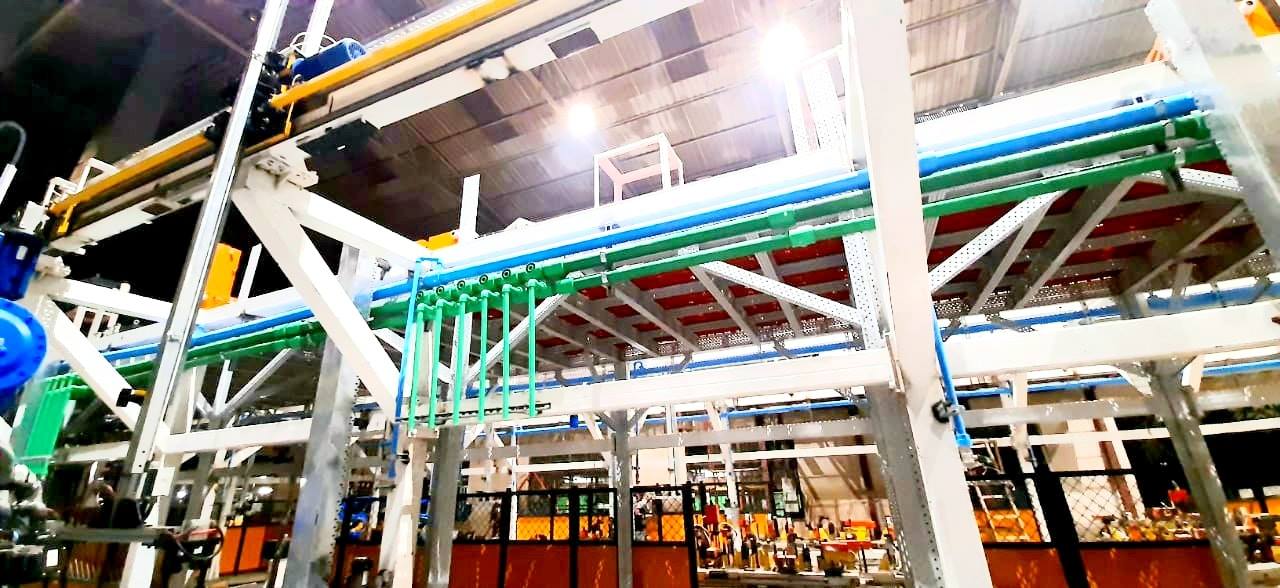
Why choose this type of material ?
The thermoplastic resins most often used to make pipes for water and heating systems are:
- PE-X cross linked polyethylene
- PP-C copolymer polypropylene
- PB polibutene
All the above- mentioned resins belong to the polyolephine family, a group of plastic materials obtained by polymerization of unsaturated hydrocarbons, which have one or more double links. In a conventional polymer the molecular chains are irregularly placed: they have fairly good mobility, heat causes oscillation in these chains until they break, resulting in alteration of material’s characteristics. Two ways of preventing this problem have been tested.
Researchers have selected polymers with long molecular chains because, as molecular rate increases, the mechanical characteristics of manufactured item improve; these chains must be as linear as possible, i.e. they must show a low number of ramifications and a high degree of crystallization by extrusion these chains are submitted to stretch, allowing crystallization of a further percentage.
Isotactic polymers show much better mechanical characteristics as compared to their correspondent amorphous polymers; they maintain their properties up to temperatures close to melting point. Thus describes the nature of polypropylene techno-polymers in a simple way.
The other way tested by researchers is creation of chemical links among molecular chains in order to make them much steadier and avoid their sliding. This procedure has been adopted for the cross linking of polyethylene-PE-X.
There is a very big production of PP copolymers it is therefore important that fitness of raw material used be proven; it must be suitable to bear the thermo mechanical stresses required of it in operation for a long time (50 years).
Thus it guaranteed that goods manufactured have high mechanical properties; it has been stabilized with appropriate anti-oxidants to postpone the combined effects of pressure and temperature for a very long time.
Property Of Raw Material
PPR Plumbing Pipe system is made from Basel & Hyosung materials which are considered as one of the best PPR-C material all over the world, a Random Copolymer Polypropylene (PPR-C) approved for the production of pipes and fittings according to DIN 8078 & DIN 16962 standards. Reliance PPR Raw material is a thermoplastic resin which is transformed in to the finished product by a rise in temperature, which plasticises the material, allowing the pipe to be produced by means of EXTRUSION and the fittings by MOULDING. The raw material is supplied in granules precolored.
Special heat resistance is one of the feature of this material, Its physical and chemical properties are well suited to transfer of potable water and in the heating sector. Depending on pressure it is possible to use KPT – pipes for constant temperatures up to 700 C with service life of more than 50 years. Peak temperatures of 1000C arising from short disruptions are not creating any problem.
Advantages of KPT PPR-C Piping System
PPR pipes and fittings are made from polypropylene random co polymer specially developed for this use. Its characteristics make it suitable for both Industrial and Commercial applications with outstanding reliability over time.
One special feature of the KPT PPR-C pipe system is the assembly technique, in which the parts to be connected are welded by melting and fusion. After fusion welding, the pipe and fittings form a single continuous body with none of the problems, which may derive from potential leakage points. This makes the joints as PERMANENT. No sealants or adhesives are required for these permanent connections.
